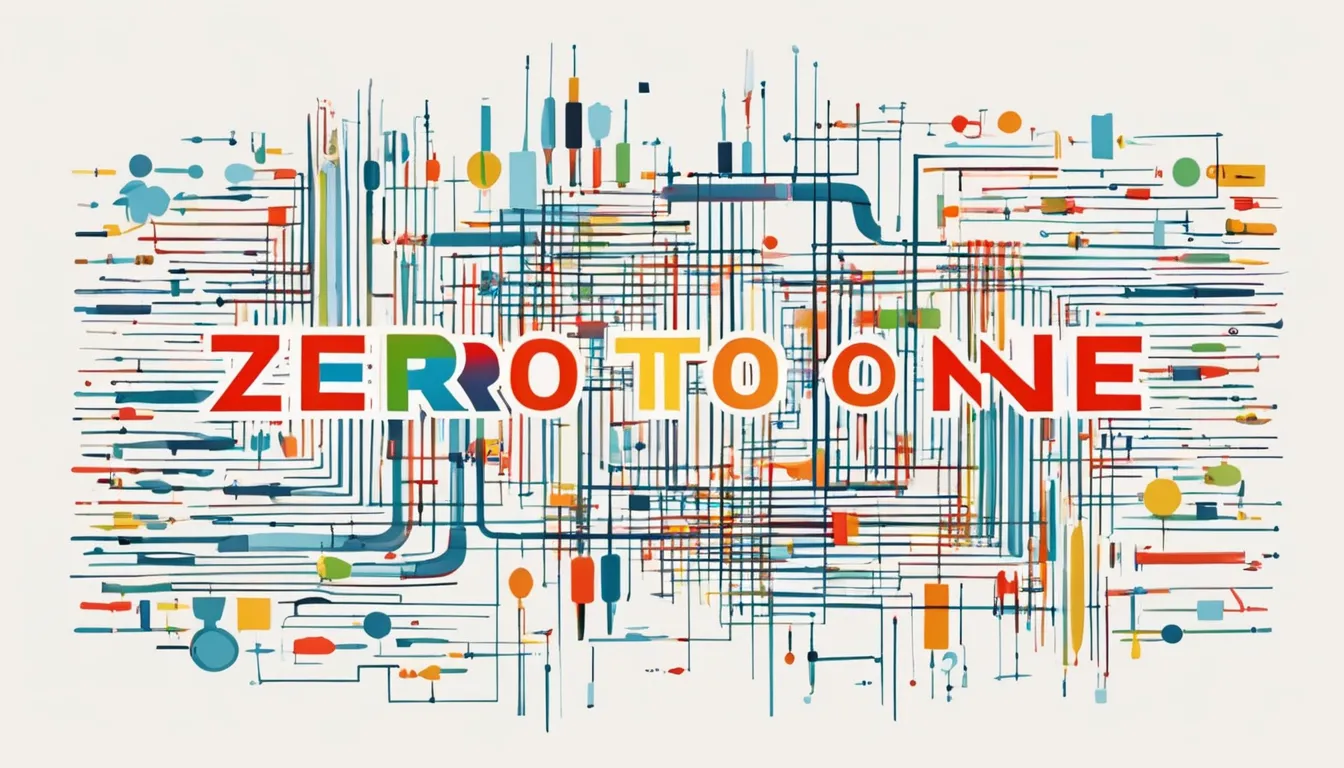Zero to One: Notes on Startups, or How to Construct the Future with Peter Thiel’s Help
Table of Contents:
- Introduction
- Principal Concepts
a. Monopoly vs. Competition
b. The Power of Technology
c. The Significance of a Firm Basis
d. Definite Optimism - Structure
- Functional Key Points
a. Monopolistic Strategy
b. First-Mover Advantage
c. Visionary Leadership - Impact
- Conclusion
Introduction:
How can companies revolutionize in a world full of conflict and produce something distinctly unique? The famous venture entrepreneur and co-founder of PayPal, Peter Thiel, speeches this issue in his e-book Zero to One: Notes on Startups, or How to Build the Future. According to Thiel, the most popular businesses are those that move from “0 to 1″—developing completely original harvests or ideas that disrupt the market equitably rather than merely refining upon already existing ones. This e-book delivers valuable insights for entrepreneurs considering building advanced companies that affect the future.
Principal Concepts
- Monopoly vs. Competition:
Thiel challenges the usually-held confidence that facing conflict is crucial to success. Rather, he supports the establishment of monopolies, in which a business controls a market because it provides a unique offering that is difficult for competitors to match. “Competition is for losers,” he says. According to Thiel, monopolies stimulate innovation by providing the means and security required to take chances and generate novel ideas. - The Power of Technology:
One of Thiel’s most important concepts is that the greatest possible pressure to advance society comes from technological revolution. He pushes business owners to focus on building a new era that not only improves existing systems but also opens up entirely new markets. The idea is to create something that did not occur before to go from “0 to 1.” - The Significance of a Firm Basis:
Thiel highlights the need to get the fundamentals right from the beginning. This entails pushing together a strong team, defining a clear vision, and obtaining a solid financial and legal base. He believes that a startup’s early conclusions will determine its long-term success and profile its destiny. - Definite Optimism:
Thiel presents the concept of “definite positivity,” which holds that, with enough preparation and effort, the future can be better than the present. He contends that those who actively work to build the future they imagine, rather than waiting for it to happen, are the most successful marketers because they are positive idealists.
Structure:
Zero to One is organized around Thiel’s core principles for making successful enterprises. The e-book is broken up into brief, to-the-point chapters, each of which focuses on a different facet of entrepreneurship. Thiel explains his arguments using a blend of real-world stories, practical counsel, and theoretical visions. The framework is intended to be accessible and thought-provoking, making difficult concepts easy to cognize and apply.
Functional Key Points
- Monopolistic Strategy:
Thiel proposes that entrepreneurs should aim to establish domination by providing something so unique that they control their position, as opposed to challenging it in congested markets. This approach lessens resistance and gives the agency the self-determination to define its terms for competition. - First-Mover Advantage:
Thiel highlights the value of entering a new market or evolving a brand-new product first. Because of this first-mover advantage, businesspersons can build a solid brand and custom before rivals can take advantage of it. - Visionary Leadership:
According to Thiel, successful firms are driven by idealistic businessmen who are unafraid to take risks and have big ideas. These leaders are devoted to transforming the world rather than just making quick money.
Impact:
- The concept of Zero to One has significantly changed how business owner’s methods of founding enterprises.
- Thiel’s ideas challenge a lot of old-style policies, pushing business owners to rethink effectiveness, innovation, and the role of the next generation in responsible the course of history.
- A new generation of entrepreneurs and inventors has been sparked by his emphasis on creating something completely new rather than improving what already exists.
Conclusion:
The book Zero to One by Peter Thiel presents a novel standpoint on entrepreneurship by emphasizing the value of creativity, monopolistic tactics, and visionary leadership. Thiel’s explanations inspire businesspeople to look past difficulties and pursue improvements that could turn a sector from zero to one. This ebook is a vital supply for anyone trying to build a startup that not only continues but thrives.
For extra details and insights, you can visit the official [Zero to One website](https://zerotoonebook.Com/).
